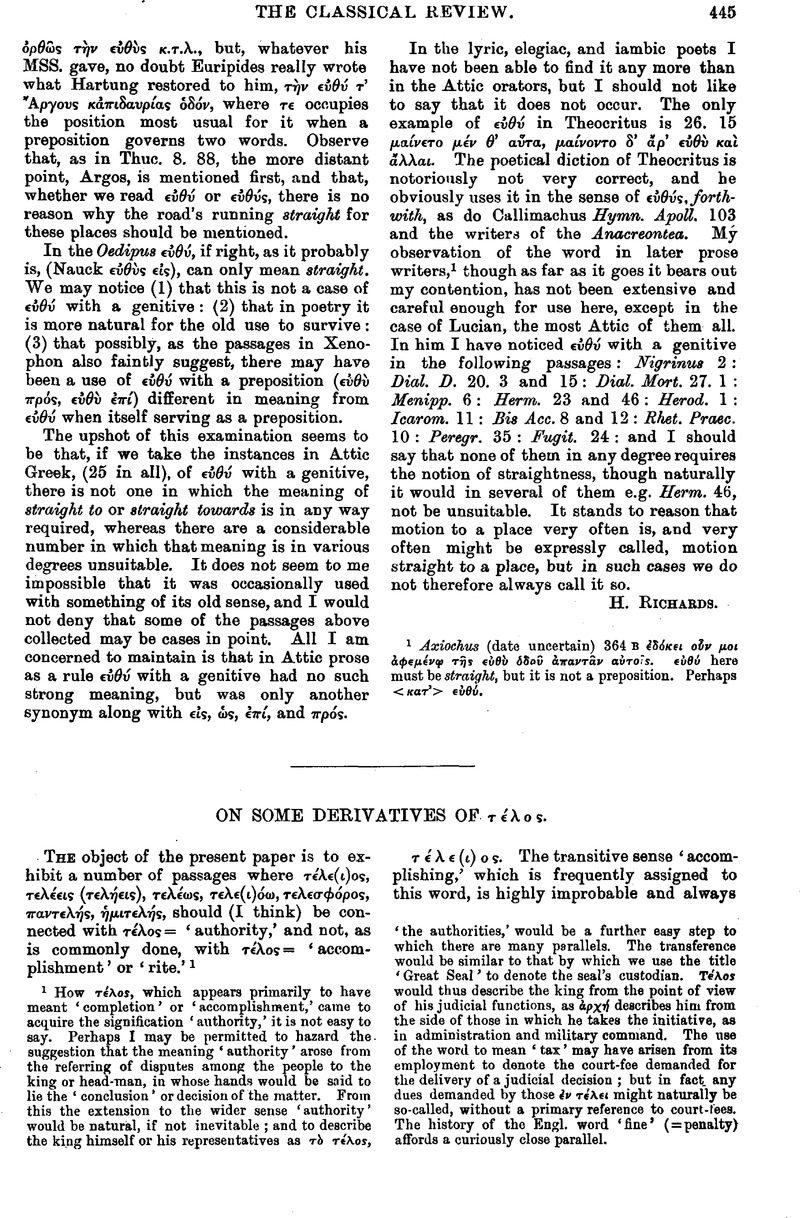No CrossRef data available.
Published online by Cambridge University Press: 27 October 2009

1 How τλος, which appears primarily to have meant ‘completion’ or ‘accomplishment,’ came to acquire the signification ‘authority,’ it is not easy to say. Perhaps I may be permitted to hazard the suggestion that the meaning ‘authority’ arose from the referring of disputes among the people to the king or head-man, in whose hands would be said to lie the ‘conclusion’ or decision of the matter. From this the extension to the wider sense ‘authority’ would be natural, if not inevitable; and to describe the king himself or his representatives as τ τλος, ‘the authorities,’ would be a further easy step to which there are many parallels. The transference would be similar to that by which we use the title ‘Great Seal’ to denote the seal's custodian. Τλος; would thus describe the king from the point of view of his judicial functions, as ρξ describes him from the side of those in which he takes the initiative, as in administration and military command. The use of the word to mean ‘tax’ may have arisen from its employment to denote the court-fee demanded for the delivery of a judicial decision; but in fact, any dues demanded by those ν τλει might naturally be so-called, without a primary reference to court-fees. The history of the Engl. word ‘fine’ (=penalty) affords a curiously close parallel.